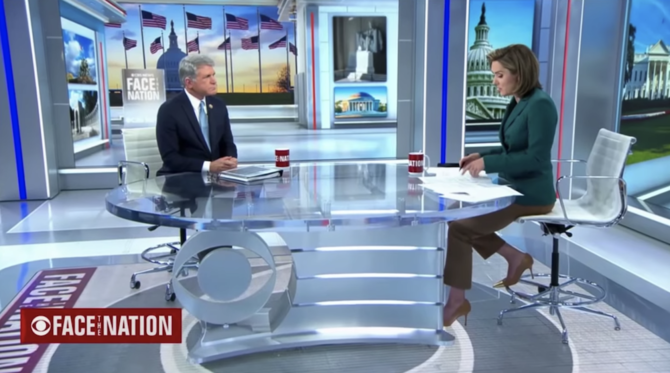CHICAGO: Republican members of the US House Committee on Foreign Relations issued a scathing rebuke of President Joe Biden’s withdrawal from Afghanistan, citing worrisome trends including the oppression of Afghan women and abandonment of allies.
The 151-page report titled “A Strategic Failure: Assessing the Administrations Afghanistan Withdrawal” released Aug. 18, supplements similar conclusions in a February 2022 report by the US Senate Foreign Relations Committee titled “Left Behind: A Brief Assessment of the Biden Administration’s Strategic Failures during Afghanistan Evacuation.”
The new report begins citing the Taliban’s “rule of terror” and continued oppression of women. The old Taliban government gave Al-Qaeda sanctuary, allowing it to plan terrorist attacks culminating in the Sept. 11, 2001 attacks that killed nearly 3,000 people.
“A week into the evacuation, it was clear women and girls were at a distinct disadvantage in their attempts to get to safety. Women who attempted to get through the crowds at HKIA (Kabul International Airport) were beaten and shot at for not being accompanied by a male, sexually assaulted, trampled, and forced to stand in wastewater for hours — only to be turned away if they did not have the right piece of paper or had not been hand-selected because of a political connection,” the report said.
Worse, it concludes, Biden failed to prevent the release of “thousands of Al-Qaeda, ISIS (Daesh) and Taliban prisoners from Afghanistan government prisons.”
Three months after taking office, Biden announced his decision to formally withdraw US forces by Sept. 11, 2021, but according to the report failed to take action to prepare for the withdrawal for more than four months afterwards, allowing the Taliban to seize power.
The report challenges Biden’s principles, in which he asserted that he had consulted on the withdrawal with allies and senior military advisors, and that withdrawing was the only way to prevent returning to war. Biden claimed Afghan forces could defend their country without direct US aid, and blamed former President Donald Trump’s 2020 Doha Agreement as having “forced” the withdrawal.
Biden added the US mission to kill Al-Qaeda leader Osama Bin Laden and eradicate the terrorist organization had been achieved.
“However, the Committee Minority now believes none of these claims were accurate. And worse, President Biden was likely aware they were not accurate when he made his case to the American people in April 2021,” the GOP leadership concluded.
“There is ample evidence, including direct testimony from American military leaders and top NATO allies that they supported a continued conditions-based deployment in Afghanistan. They believed the best option was to keep an advisory and counterterrorism mission in place that consisted of 2,500 US military personnel along with 6,000 mostly NATO forces.”
The House Foreign Affairs Committee’ lead Republican, Sen. Michael McCaul, said: “There are many sins, if you will. There was a complete lack of, and a failure to plan. There was no plan, and there was no plan executed ... We had to rely on the Taliban to secure the perimeter of HKIA. That led to the chaos. And it also led to the suicide bomber that killed 13 service members, men and women, and injured hundreds of people. And it could have been avoided.”
Biden’s failure to follow up and plan the withdrawal resulted in “the Aug. 26, 2021 bombing at Abbey Gate that resulted in the death of 13 US service members and 160 Afghans, and the wounding of 45 additional US service members.”
Many US citizens were left behind during the withdrawal to fend for themselves in Afghanistan.
Biden was more concerned, according to the report, with avoiding a repeat of the iconic image that reflected the chaos of the withdrawal from Vietnam on April 30, 1975, of the last helicopter lifting off from the US Embassy in Saigon, leaving thousands of desperate Vietnamese who helped the Americans to fend for themselves as the Viet Cong approached. Many helicopters were pushed off of an aircraft carrier to make room for others filled with fleeing soldiers.
The Afghanistan withdrawal has “degraded” the image of the US’s standing in the world and broke promises to Afghans who worked for the US that they would be rescued, but never were able to leave. A year later, no planning was ever undertaken to rescue the Afghan allies.
“Since seizing control, Taliban fighters have reportedly engaged in targeted revenge killings, with reports of hundreds of reprisals being carried out. Taliban militants have also seized land from former government officials and minority groups such as the Hazara, threatening people with violence if they refuse to surrender their property to the Taliban,” the report details.
One investigation in April 2022 found nearly 500 former Afghan government officials and members of the Afghan security forces “were killed or forcibly disappeared during the Taliban’s first six months in power.”
These reprisal attacks, documented by US-based volunteer groups seeking to aid Afghan evacuees, have included “beheadings, hangings, severed limbs, lash marks, bullet-ridden bodies inside a car.”
The Republican committee members said they planned to convene a public hearing and investigation into the withdrawal, something that can only happen if the GOP takes control of the US House of Representatives, as is expected in the Nov. 8 elections.














